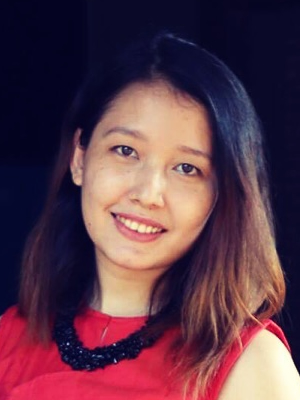Internet Outage and Freedom of Expression
Hnin Htet Htet Aung
(Visiting Researcher, Graduate School of Law, Hitotsubashi University)
April 25, 2022
This is an English translation of “အင်တာနက်ဖြတ်တောက်ခြင်းနှင့် လွတ်လပ်စွာ ထုတ်ဖော်ခွင့်,” originally published from ယနေ့ခေတ် နိုင်ငံရေး မဂ္ဂဇင်း (World Today Political Magazine) on February 1, 2022. The original article can be accessed at: https://www.ynkhit.com/အင်တာနက်ဖြတ်တောက်ခြင်း/
When we speak about freedom of expression in this information age, the internet must be included in the discussion. At the same time, if the topic is the internet, the issue of freedom of expression is already implicated. Although the internet is a source of information and access to it represents the ability of the majority all over the world, including both young and old people, to enjoy the essence of freedom of speech, in some parts of the world people are struggling with the shutdown of the internet. We have seen online censorship by the Myanmar military junta who intended to restrict the flow of information to the people of Myanmar.
Restriction of the internet is among the most common means used by dictators to protect their interests and authority. Discussion among the people, dissemination of information and online coordination pose a threat to dictators and result in the shutting down of the internet. The countries where the internet outages are most commonly found include Myanmar, Congo, Chad, Ethiopia, China and Zimbabwe.
Among these countries, China takes first place on the list as a country where internet user rights are the most constrained by repressive internet rules. Disseminating disinformation and propaganda was instigated by China to violate internet user rights, and these mechanisms have also been used by other dictators to follow in the path of China and its repressive rules.
Myanmar also was named by some media as the country with the longest internet shutdown. In the wake of the February 1, 2021 events, Myanmar was hit by a nationwide internet outage. In the early hours of the morning when the coup began, the internet was cut off in order to prevent information on the flow of arrests and repression that followed the coup. The Myanmar population found their Wi-Fi internet access was cut off and the dictators blacked out news coverage across the country.
Soon after September, internet cut-off in 25 townships was reported by an internet freedom activist. This seemed to be intended as a barrier to the timely flow of information on terrorist activity in those areas, and the relevance of why the internet was cut off in such areas is in itself also a cause for concern.
Contrary to this growing form of digital dictatorship, maintaining internet freedom has become a fundamental effort in the struggle for democracy. Technology is now playing a vital role in enabling free economic and political choice without coercion.
Shames Abdelwahab and Mallory Knodel wrote in an article in Open Global Rights about why internet freedom should be at the forefront of the global democratic process regarding the Myanmar coup. Their writing suggests that the global democratization process should focus more on cyber security and freedom of the internet. In addition, they emphasized that the various international organizations working for internet freedom should push together on this issue. It is clear to see that internet freedom, which is recommended for inclusion in the democratization process, is not only directly related to freedom of expression, but also to the economic development of a country.
The link between internet freedom and business can be seen in a joint statement issued by the Global Network Initiative and Myanmar Center for Responsible Business (MCRB) in May. The statement said that the disruption of mobile internet had caused banking inconvenience for local small and medium enterprises, and had exacerbated the decline of the banking sector.
Controlling the freedom of the internet, which is criticized by international organizations, should be an essential matter for the dictator to review given that cutting off the internet could impede the people’s right to freedom of expression and the democratic process, and if such cuts could exacerbate the country’s economic problems.
References
- Why internet freedom should be at at the top of the global democracy agenda by Shames Abdelwahab & Mallory Knodel
- Joint Statement on Mobile Internet Shutdown in Myanmar by Joint Statement on Mobile Internet Shutdown in Myanmar
Hnin Htet Htet Aung Profile
Hnin Htet Htet Aung is a Visiting Researcher at the Graduate School of Law, Hitotsubashi University. Hnin has nine years of experience working in civil society, international non-governmental organizations, and a Singapore-based advisory firm. Before being a visiting researcher, Hnin worked as a program director at Citizen Action for Transparency (CAfT – Myanmar). Prior to that, she was a program manager at the National Coordination Secretariat – Myanmar Extractive Industries Transparency Initiative (MEITI) and program officer at Norwegian People’s Aid and other organizations. Through her work, she has supported civil society organizations and their activists. She has published articles about the political situation in Myanmar, women’s rights, transitional justice, collective actions, and freedom of expression, in both Burmese and English. She holds a master’s degree in public administration from Aldersgate College, Philippines and a bachelor’s degree in law from Dagon University, Myanmar.


